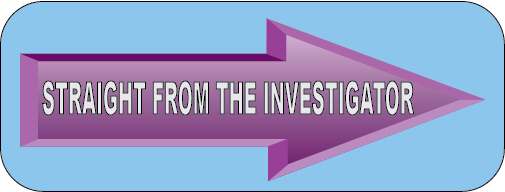MIRECC / CoE
VISN 5 MIRECC Matters Fall 2020- Straight from the Investigator: CBT-I for Veterans with Psychosis

Recovery Research Straight from the Investigator: CBT-Insomnia for Veterans with Psychosis
Elizabeth Klingaman, Ph.D.,
VISN 5 MIRECC Research Investigator
Inside the Fall 2020 Issue:
- VISN 5 MIRECC Director's Corner
- VA Mental Health Lived Experience Community of Practice & VISN 5 MIRECC Partnership
- Recovery Research Straight from the Investigator: CBT-Insomnia for Veterans with Psychosis
- Small Grants for Recovery: Training on Acceptance and Commitment Therapy
- Small Grants for Recovery: Dialectical Behavioral Therapy at the DC VAMC
- MIRECC Advanced Fellowship Program

Insomnia affects an alarming number of Veterans with psychotic disorders.1 It is a major contributor to poor functioning and high distress. Additionally, insomnia causes significant long-term negative impacts on physical, emotional, psychosocial, and cognitive recovery. It can aggravate psychotic symptoms and can lead to a frightening increase in lifetime risk for attempting suicide.
The VHA has made insomnia treatment a high priority and has initiated a nationwide dissemination of Cognitive Behavioral Therapy for Insomnia (CBT-I), the gold standard intervention for insomnia treatment.2* Despite the effectiveness of CBT-I and the burden of insomnia in psychosis, few Veterans with psychosis and insomnia receive CBT-I. Reasons for this are both practical and illness-related factors that make delivery of CBT-I challenging in Veterans with psychotic disorders.3,4 Veterans with psychosis deserve access to the same treatments that are available to other Veterans and I felt this inequity in delivery of insomnia treatment must be addressed.
So, I developed guidelines to assist providers in clinically tailoring Cognitive Behavioral Therapy for Insomnia (CBT-I)–so that it meets the unique needs of Veterans living with psychosis. The clinical guidance and client materials I developed allow delivery of CBT-I in the presence of distressing paranoia and hallucinations, cognitive impairment, motivational deficits, lack of structured daytime activities and sedating and activating medications.** I did an initial, or pilot, study of CBT-I delivered with these guidelines and have found that it is feasible, acceptable, and shows preliminary efficacy in helping alleviate insomnia. My next step, along with my co-investigator, Dr. Philip Gehrman of the Philadelphia VA Medical Center, is to evaluate whether CBT-I delivered using these guidelines improves both sleep and functioning in Veterans living with psychosis and insomnia. This project will also examine the extent to which improvements in insomnia are associated with longer-term benefits. If CBT-I delivered in line with these guidelines is effective, the guidelines can be integrated into the existing national VA CBT-I trainings, manual, and online treatments to enhance the rehabilitation of Veterans with psychosis and further expanding the range of recovery-oriented interventions available to this highly affected yet underserved population.
*Although not intended specifically for individuals with serious mental illness, the VA offers a general self-guided resource for insomnia entitled the Path to Better Sleep. Learn more by visiting
https://www.veterantraining.va.gov/insomnia/
**For more information about symptoms and treatments of psychotic disorders, please visit our Informational Guides for Veterans and Families about Schizophrenia webpage.
 Beth Klingaman, Ph.D.
Beth Klingaman, Ph.D.Note from the author: My research on CBT-I for Veterans with serious mental illness has been supported by VISN 5 MIRECC and QUERI pilot research funding and VA RR&D CDA-2 award (1IK2RX001836). My continued work in this area will be supported by RR&D Merit award proposal (I01RX 003213-01A1).
References
- Cohrs, S. (2008). Sleep disturbances in patients with schizophrenia: Impact and effect of antipsychotics. CNS Drugs [serial online], 22, 939-962.
- Manber, R., Friedman, L., Siebern, A. T., Carney, C., Edinger, J., Epstein, D., … & Karlin, B. E. (2014). Cognitive Behavioral Therapy for insomnia in Veterans: Therapist manual. Washington, DC: U.S. Department of Veterans Affairs.
- Klingaman, E.A., McCarthy, J.M., Schwartz, E.K., Gehrman, P.R., & Bennett, M.E. (2017). Targets for the Treatment of Insomnia in Veterans With Serious Mental Illness. Journal of Psychiatric Practice, 23(4) 270-280. doi:10.1097/pra.0000000000000240. PMID: 28749831.
- Klingaman, E.A., Lucksted, A., Crosby, E.S., Blank, Y., & Schwartz, E. (2019). A phenomenological inquiry into the experience of sleep: Perspectives of US military veterans with insomnia and serious mental illness. Journal of Sleep Research, 28(4):e12833. https://doi.org/10.1111/jsr.12833
Disclaimer of external hyperlinks: This webpage contains links to webpages outside of the Department of Veterans Affairs website. The VA neither endorses nor has responsibility for the content of these external webpages.



















